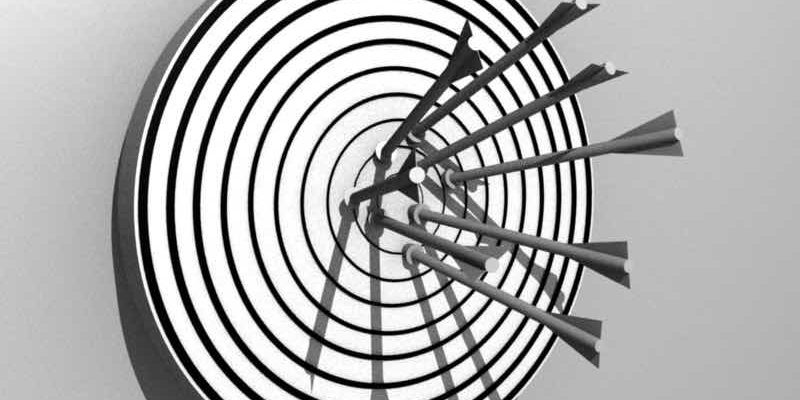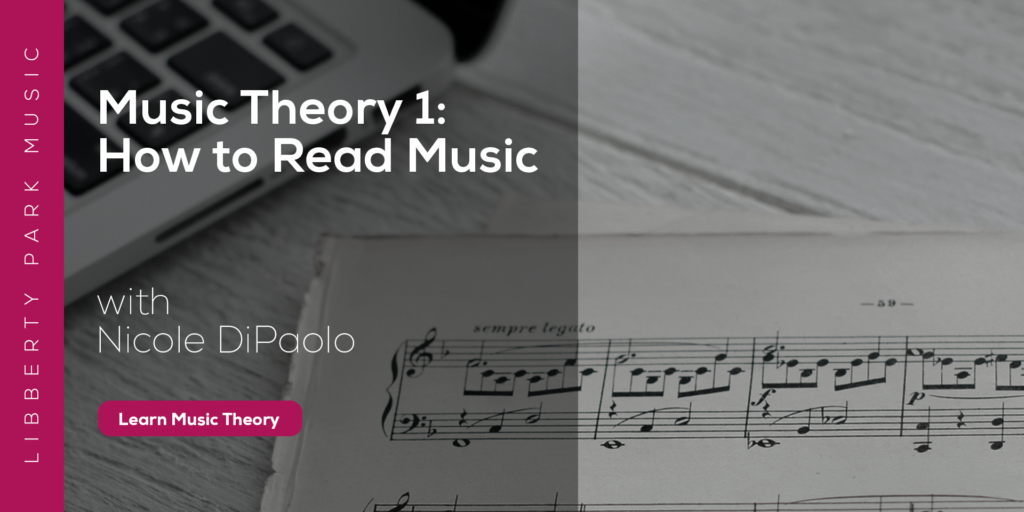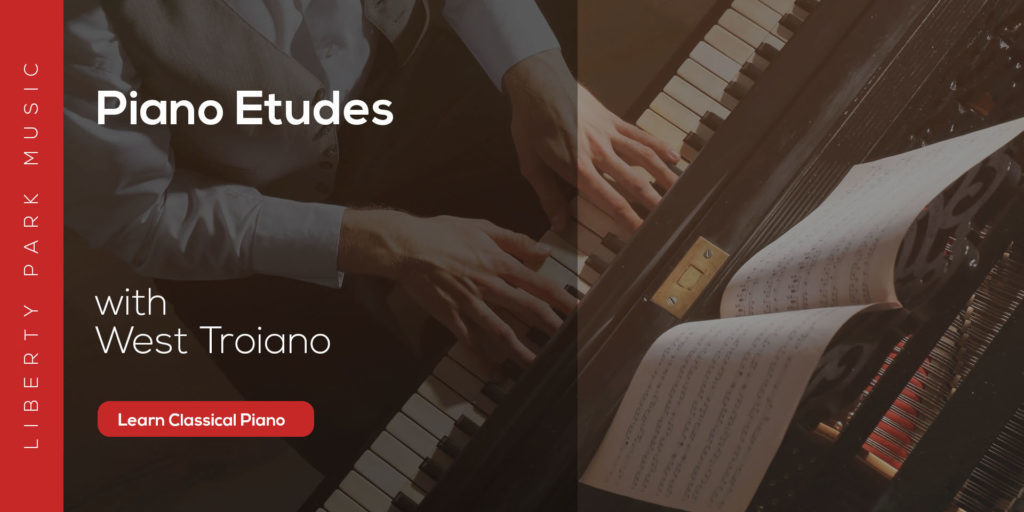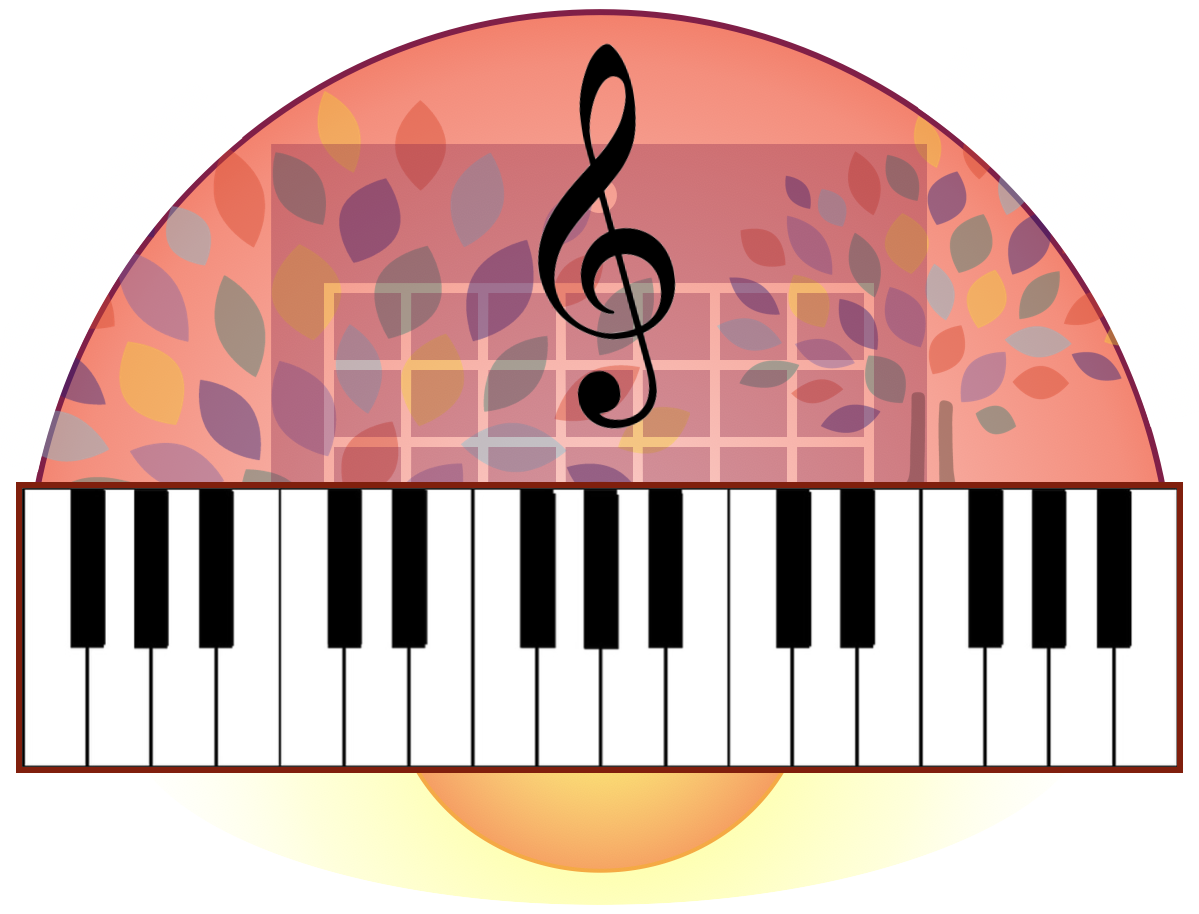
So you’ve started your piano education - Congratulations! You’ve embarked on a lifelong journey brimming with enrichment and accomplishment. To learn an instrument is not only to reap the joy of playing music, but to learn about yourself and develop your core learning abilities.
Now that you’re committed to the path of learning an instrument, it’s time to pick the route you’ll take to make your musical goals achievable: it’s time to make a practice plan.
Practicing is how you get better at music. Period. If you do not practice, you cannot improve, and the best way to improve through practicing is by keeping a consistent practice schedule throughout the week.
However, like many people, you probably lead a busy life. Especially if you’re starting your music education a little later, you likely have responsibilities and commitments that are vying for your valuable time. This can make it tricky to nail down a practice schedule. Ideally, we would practice almost every day, but not all of us have that kind of time. Additionally, you may not have a good practicing environment available to you when you do have the time, which adds another layer to consider.
In this article, we’ll present you with five different, time-based practice plans to help guide you towards establishing a consistent practice schedule. These plans are developed as a general representation of what you need to accomplish as a beginning pianist to make progress from week-to-week, divided into different plans depending on the time you have available.
How much should you be learning in a week?
 An important thing to figure out when deciding how much time you need to practice is how much material you need to practice.
An important thing to figure out when deciding how much time you need to practice is how much material you need to practice.
Ask five pianists how much material they practice in a given week, and you’ll probably get five different answers. That said, there are some general guidelines that can be followed when trying to figure out how much you should be practicing as a beginning, non-conservatory level student.
Here at Liberty Park Music, we have devised our plans around those guidelines, and as a part of each plan you’ll see about how much you should be accomplishing within the amount of time presented.
Difficulty is a major feature governing how much material you should be able to get through in a week. As a beginning pianist, you’ll be spending the bulk of your practice time working on short learning pieces.
Ideally, what you're practicing shouldn’t be so easy that you’re able to fly through it well within a week’s worth of practice time, and it shouldn’t be so difficult that you have to spend more than two weeks completing it.
Once you get into higher difficulty levels and start working on longer, more detailed pieces, this rule doesn’t necessarily apply. But for now, you can use this to help you gauge your practicing efficiency and capabilities.
Let’s take a look at the practice plans.
Practice Plans
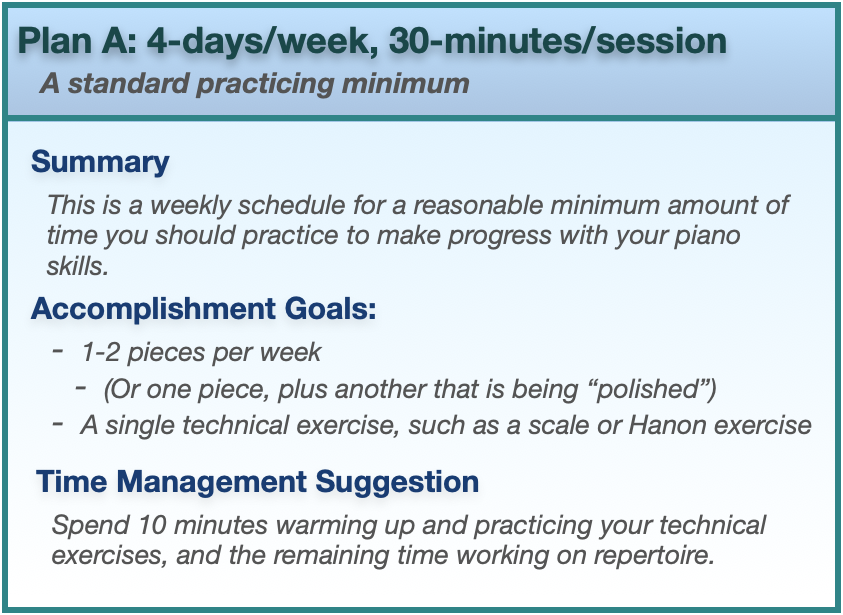
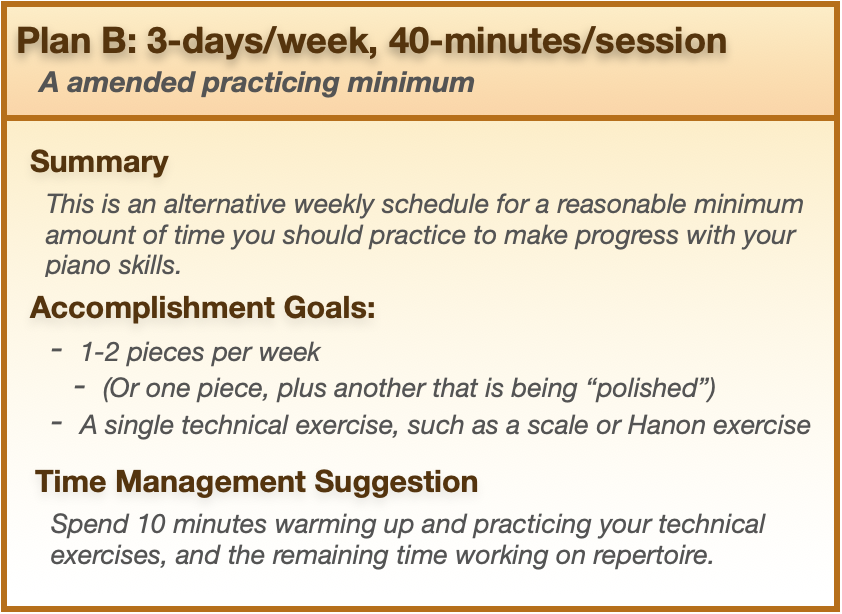
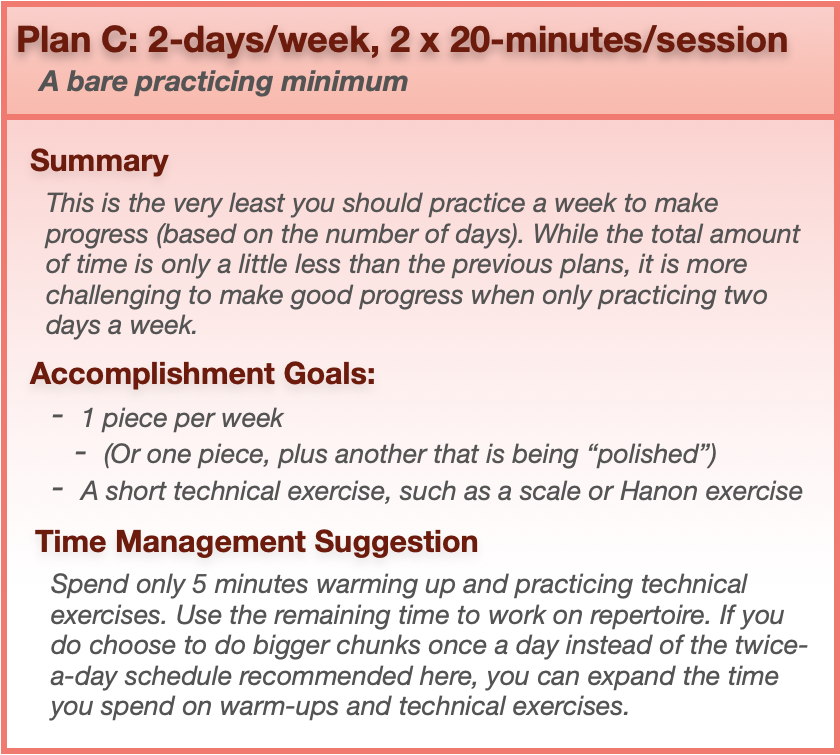
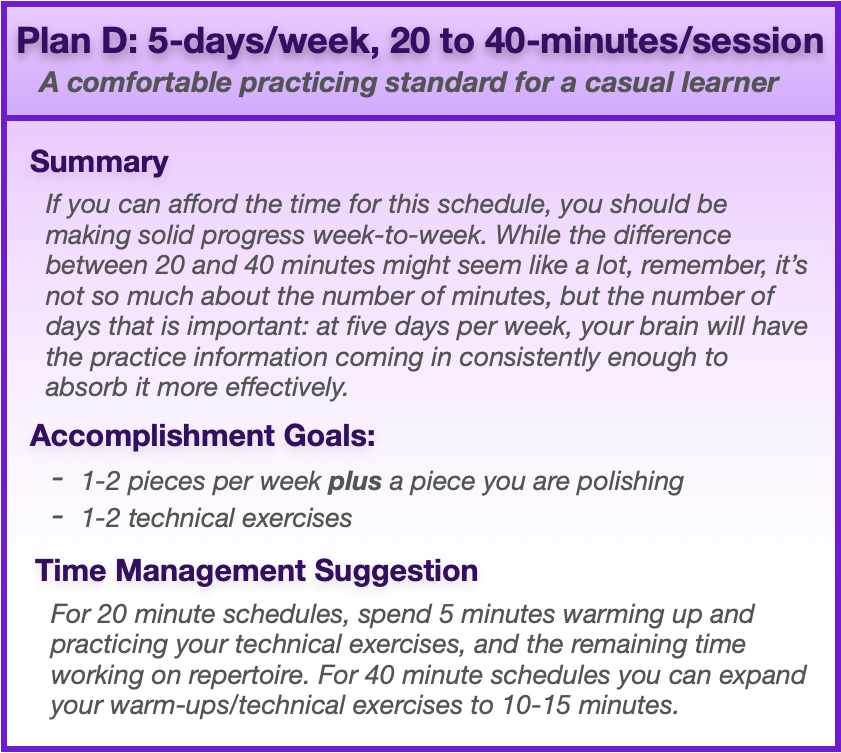
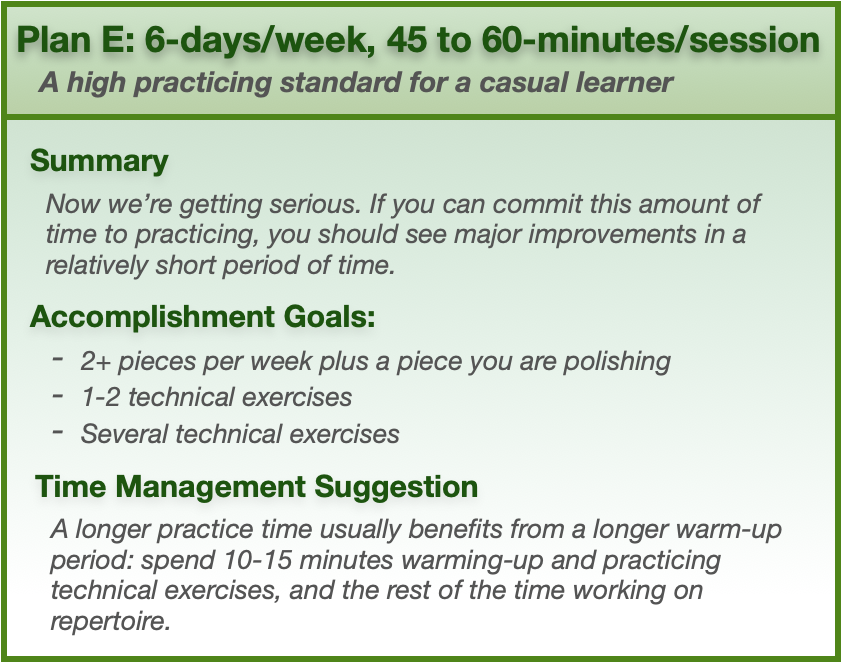
Good to Take a Day Off
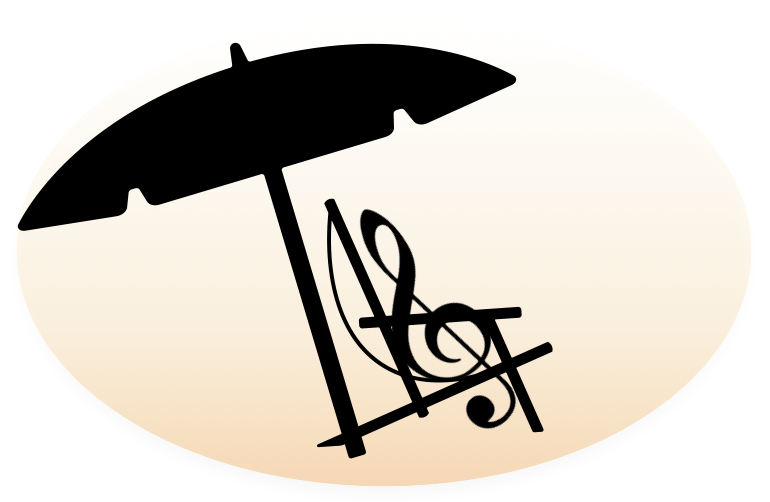 While yes, practicing every day will help you to improve faster, it’s also worth taking a rest day throughout the week, for multiple reasons. Letting your hands and arms rest will help you to avoid injuring yourself, and resting will also give the information you’ve been pouring into your brain and body time to settle.
While yes, practicing every day will help you to improve faster, it’s also worth taking a rest day throughout the week, for multiple reasons. Letting your hands and arms rest will help you to avoid injuring yourself, and resting will also give the information you’ve been pouring into your brain and body time to settle.
Practicing too much can also result in “plateauing,” which is when you are unable to make further significant gains or improvements, even though you’re continuing to practice. Plateauing can be countered by taking breaks from the material you’re practicing, or by working on other material and coming back to the stuck material later.
If you find yourself with time to spare on your day off, consider pursuing your musical education in other ways, such as by listening to music (which is extremely important), reading, or watching music education videos, such as Liberty Park Music’s History videos! (check them out here).
How to Get the Most from Your Practice Plan
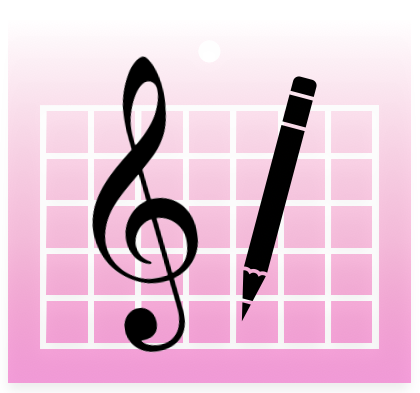 A practice plan is only as good as your willingness to and ability to stick to it. It’s like a magical power that works only as long as you really believe it can.
A practice plan is only as good as your willingness to and ability to stick to it. It’s like a magical power that works only as long as you really believe it can.
The easiest way to help yourself stick to your practice plan is to create a schedule in which you establish regular practice times that do not change. Of course, sometimes life gets in the way, and in those cases you’ll have to find a way to make up for lost time, but in general, the times at which you schedule your practice time should be as uninterruptible as possible.
For example, if you know that it takes you a while to get going in the morning, and you have work starting at a consistent time all week, you should probably avoid trying to schedule your practice time between when you wake up and when you have to work. Try picking a time after you’re done, or perhaps in a zone of flexibility between stopping work and starting dinner? Or even after dinner?
To be sure, this can be a challenge - as wonderful as practicing can be, it’s still its own kind of work, and you may have to muster some extra energy to sit down and practice at the end of a long day. Just remember your goals, and why you wanted to learn the piano in the first place! Keeping that perspective, and finding ways to inspire yourself, are the keys to maintaining the energy for your practicing.
If Something's Not Working, Try Something Else!
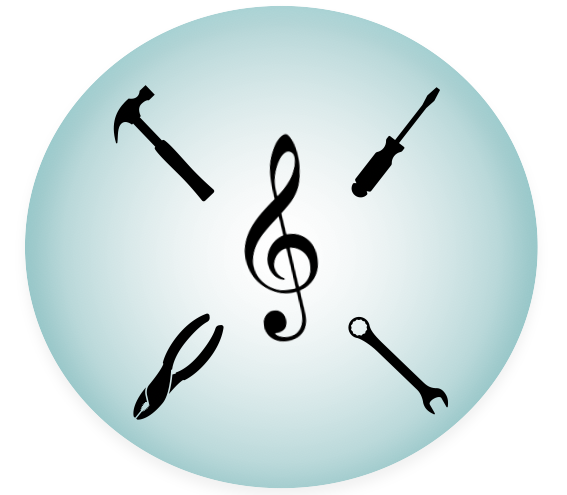 Finally, if you find that the practice plan you’ve chosen is not giving you the results you’d like, try another one! Not everybody works the same - you might think that a 4-day per week schedule is the best for you, but who knows, maybe you do better with three days (or five days)? You’ll need to experiment a bit to determine what works best for you.
Finally, if you find that the practice plan you’ve chosen is not giving you the results you’d like, try another one! Not everybody works the same - you might think that a 4-day per week schedule is the best for you, but who knows, maybe you do better with three days (or five days)? You’ll need to experiment a bit to determine what works best for you.
You’ll also need to take into account your practicing strategies; no matter how much time you spend practicing, if you’re trying to practice using inefficient methods, you’re going to see much less return for your investment. Fortunately, we have a great article on practice strategies for you to check out here.
Thanks for choosing Liberty Park Music to help you along your musical journey.
Happy Practicing!
Thanks for checking out this article from Liberty Park Music! If you liked what you saw here, you can find more in our blog at libertyparkmusic.com. We also have a YouTube page! And if you're really ready to take your music training to the next level you can subscribe to our site and gain access to a full spectrum of piano, guitar, drum, and music theory lessons.
Sign up for our free newsletter
Useful articles for musicians
About the Author: West Troiano
West has over 10 years of teaching experience in settings that vary from private studios to college classrooms. In addition to teaching through traditional forms of piano pedagogy, West frequently produces music and teaching materials that cater to the needs of his students. Check out West's course on Piano Etudes for both beginners and intermediate pianists.



